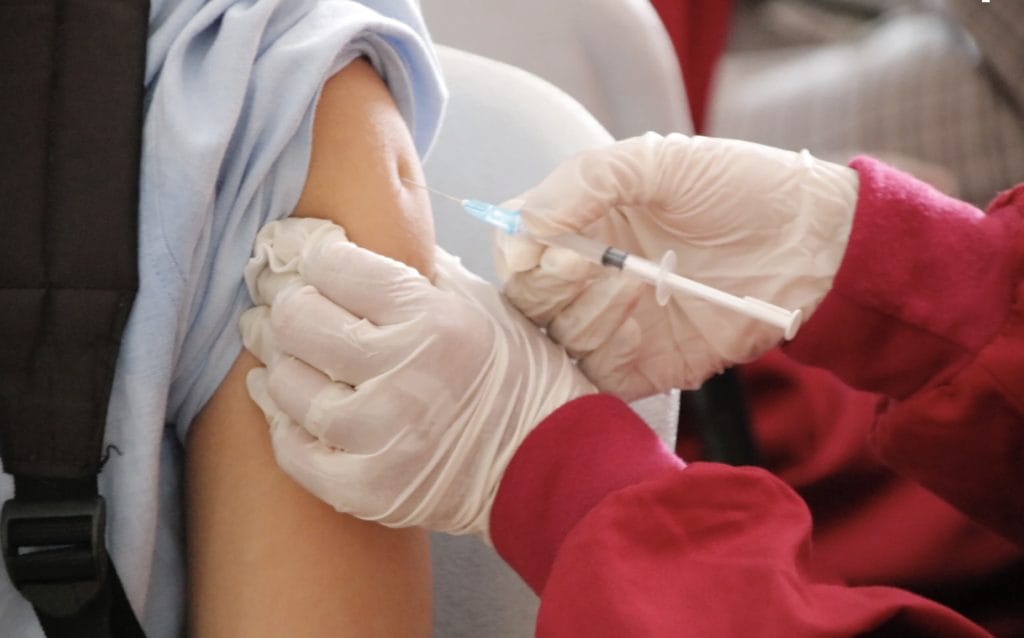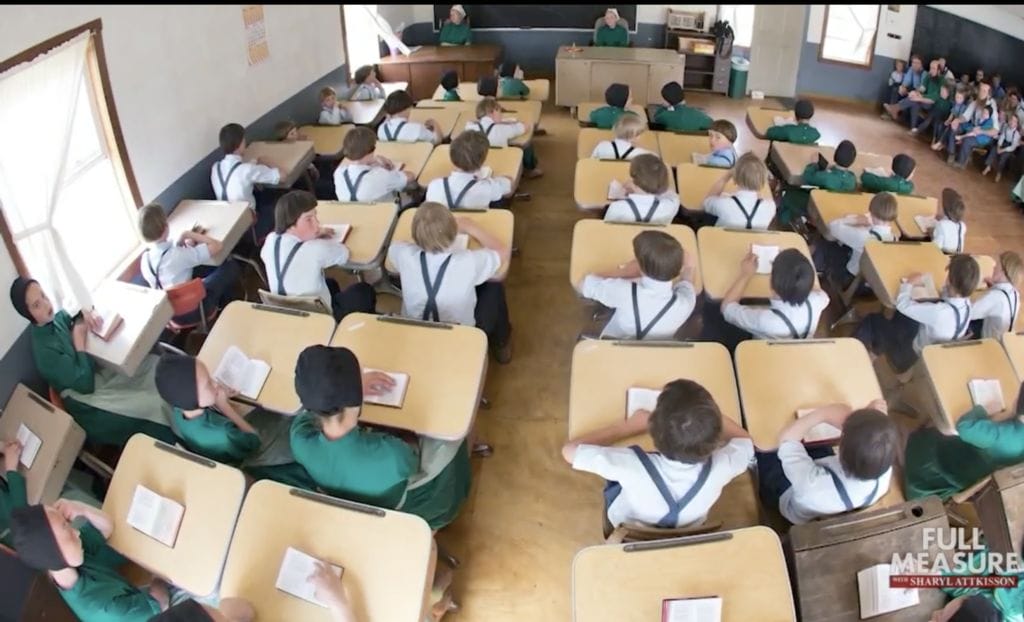The following is a news analysis.
In today’s perverted information and medical environment, you can count on at least one thing: any data that shows concerns with Covid vaccination, or any vaccination, is likely to somehow be twisted into a recommendation that more people get vaccinated.
When reading studies promoted by CDC and other traditional medical sources, it’s important to get past the analysis and calculus chosen by the agency/doctors trying to promote vaccines at any cost. Looking at the actual data and crunching the numbers reveals often-ignored facts.
In a recent CDC study, not noted in the summaries or write-ups, the data shows:
The vast majority of kids in the US are unvaccinated for Covid, and the vast majority of hospital visits if kids for any reason were among unvaccinated. But the Covid-vaccinated kids were disproportionately more likely to get intensive care treatment (5.4% vaccinated, 4.5% unvaccinated), be admitted for in- patient treatment (55% of vaccinated, 44% unvaccinated), require supplemental oxygen (36% of vaccinated, 28% unvaccinated), stay in the hospital longer (3 days for vaccinated, 2 days unvaccinated), and die (.094% of vaccinated, .031% unvaccinated). The vaccinated kids taken to the hospital had been vaccinated for Covid the last time 2-3 months prior to hospital visit.
CDC concludes that its data proves Covid vaccines benefit children even though they have little to no risk of serious illness from Covid, even though the vaccines don’t prevent transmission or illness, and even though the vaccines carry serious risks both identified and as-yet unidentified.
CDC’s interpretation of the data, which highlights it in a way that is positive for vaccines, can be read at the link below.
The following is from The Vaccine Reaction.
A recent study by the U.S. Centers for Disease Control and Prevention (CDC) published in its Morbidity and Mortality Weekly Report (MMWR) found that more than half of the children treated at emergency departments (EDs) and hospitalized for respiratory illness between July 1, 2022 and Sept. 30, 2023 had been vaccinated for Covid-19, compared to less than half of unvaccinated children.
The study, which examined data from the New Vaccine Surveillance Network (NVSN) of children six months to four years of age treated at seven pediatric medical centers in the United States, looked at 6,377 children who had never received a dose of an mRNA (messenger ribonucleic acid) Covid shot (either Pfizer/BioNTech’s Comirnaty or Moderna/NIAID’s Spikevax), 776 children who had received at least two doses, and 281 children who had received one dose.
The NVSN conducts population-based, prospective surveillance for acute respiratory illness (ARI) in children at Children’s Hospital of Pittsburgh in Pennsylvania; Children’s Mercy Hospital in Kansas City, Missouri; Cincinnati Children’s Hospital Medical Center in Ohio; Golisano Children’s Hospital in Rochester, New York; Seattle Children’s Hospital in Washington; Texas Children’s Hospital in Houston and Vanderbilt University Medical Center in Nashville, Tennessee.
Of the vaccinated children in the study, 55 percent were hospitalized for a respiratory illness, while only 44 percent of the unvaccinated children were hospitalized.
Vaccinated Kids at Higher Risk for Inpatient Hospitalization
Commenting on the results of the study, Harvey Risch, MD, PhD, professor emeritus of epidemiology at the Yale School of Public Health, stated:
This means that upon visiting hospital emergency departments, compared to unvaccinated children, vaccinated children had increased risks of inpatient hospitalization, very statistically significantly so.
According to the study, children who were vaccinated for Covid were also more likely to have undergone intensive care, require supplemental oxygen and die. Despite this, the CDC study observed that receipt of two or more mRNA Covid shot doses was 40 percent “effective in preventing Covid-19–associated ED visits and hospitalization.”
Dr. Risch, however, noted:
No one cares whether the vaccines reduce Covid-associated hospitalization if at the same time they increase non-Covid-associated hospitalization.

Visit The Sharyl Attkisson Store today
Unique gifts for independent thinkers
Proceeds benefit independent journalism




Question:
Why do some people test positive for Covid while others w same symptoms test negative? Are the tests incorrectly administered? Are the tests ineffective? Is it because one has recently had an mRNA booster?
The CDC study you sited says:
“SARS-CoV-2 infection in young children and adolescents commonly manifests as a mild or asymptomatic illness; however, some children are at risk for severe disease, including those with certain chronic conditions.”
In other words, children with chronic health problems such as asthma, sickle cell anemia, cystic fibrosis, bronchopulmonary dysplasia etc. are more like to get severely ill with COVID. They are also the children who are most like to get vaccinated. Conversely, children without a chronic disease are less likely to get vaccinated.
According to data I’ve seen, 47% of children with chronic diseases are fully vaccinated, where as only around 5% children without chronic diseases are fully vaccinated. That means that children with chronic diseases, are nearly 10 times more likely to be vaccinated. Since children with chronic diseases are more likely to be hospitalized and more likely to be vaccinated, hospitalized children are more likely to be vaccinated. That biases the data.
The problem could be solved by eliminating children without chronic diseases from the study and including a representative amount of children with chronic diseases that have not been vaccinated. That will test if the children who receive the vaccine have a lower change of hospitalization than unvaccinated children. That gives you an apples-to-apples comparison.
Your non-scientific assessment fails to look at key bias in the data, viz, most US parents don’t get their kids vaccinated for COVID, and kids whose parents are choosing to vaccinate them are usually sick with chronic illness which means they’re more likely to wind up hospitalized anyway, not because of their vaccine status. And you know this, but choose to put out your half baked comments because you’ve already decided vaccines are the problem and you’ll cherry pick the data to show that. You should be ashamed.
This is a stupid take. Kids more likely to get vaccinated also probably includes kids more likely to have comorbidities or factors that increase risk for COVID-related hospitalization because their parents are likely much more conscientious about reducing their risk. We know that even vaccinated people with comorbidities continue to have a higher risk of hospitalization, intensive care, and death due to COVID. Your reporting on this shows a lack of knowledge regarding interpretation of study data and is irresponsible.
You purport to know what you’re talking about and your link to the article only highlights the abstract? Highlight the Results and Discussion that clearly show that 40% is over the baseline of non-vaccinated kids. I did my PhD on pandemic potential of influenza viruses-in my expert opinion this article is laughably misguided.
This story is silly. Vaccinated children could have other reasons for requiring hospitalization more often. Having received the Covid vaccine does not prove that it is the cause. The children may have other issues like asthma or health conditions that caused their parents to get them vaccinated for Covid as a precautions. Learn about how science works before writing an inflammatory article
What is unsaid here is that many parents of kids born with/who developed with serious issues, like cancer, had their kids vaccinated. Those kids are already likely to be hospitalized more often than healthy VACCINATED kids.
As others have noted, at risk children are more likely to be vaccinated. The author of this article conveniently sidestepped that obvious point to further her agenda, whatever that may be. In other worse, she’s a dumb broad. Probably best to ignore loud mouth females like this one.